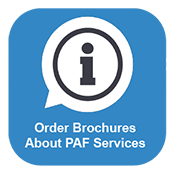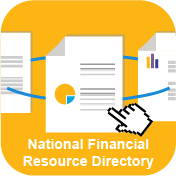Tips for Talking With Your Doctor
Do not be embarrassed to discuss personal issues with your doctors. You are a valuable piece of the decision making process and have insight and instincts that even your doctor does not. Your doctor wants the best outcome for you as much as you do, so do not be afraid to ask questions, voice concerns or share information with your provider. Empower yourself to ensure that you receive the best possible care.
Open and honest discussions with your medical team can be vital to your ability to access needed care. Historically, patients have not felt like they had the option of open dialogue about the course of treatment, alternative treatment options, the cost of treatment and how these may affect the patient and doctor decisions. Medical care providers are now more willing and able to discuss these topics with you, and now fully embrace the patient as a critical part of decision making.
Patients who have a good relationship with their doctor receive better care and are usually happier with the health assistance they receive.
Be Prepared
- Have a list specifically identifying current prescriptions, including dosage, vitamins or herbal products you take, even infrequently, and any allergies or previous reactions you have experienced. These will be very valuable to the medical team and allow the doctor to have all the information at the same time. If there are medications that have been prescribed to you but you have not filled, bring that list as well.
- Bring copies of medical records and test results if you have them.
- Write down a list of specific questions you have before your visit. List the most important first to make sure they get answered. Keeping the list handy and in view will keep you from forgetting about the list when the doctor arrives to speak to you.
- Bring a pen with a notepad or paper to be able to write down doctor recommendations or valuable information for later reference. Medical terminology can be very complex and difficult to recall after your appointment, writing it down in front of the doctor will ensure that you have the information and that the spelling is correct.
Be Honest About Your Situation
- Include financial concerns in your discussion. Nothing is more alarming than trying to recover from surgery or major treatment and being surprised by unexpected expenses. You will want to be honest about your ability to pay and the cost of your care prior to beginning treatment. Discuss what the estimated out of pocket costs are for your treatment, any discounts offered by the facility for prompt payment, cash payments, or payment plans, or any local, state, federal or disease specific resources that might be available. You should also discuss options for effective and lower cost treatment for items like surgery, imaging services, radiology and lab work.
- If you have limited support at home to help you, tell your doctor this. Both you and your doctor want to make sure you are able to take medication as prescribed or have the rest you need to recover. If there is anything that you now might limit your ability to follow the instructions, tell your doctor.
- Do not be afraid to seek a second opinion and voice your questions about them. Your doctor should not be offended by your request, and many will encourage you to seek additional counsel. Frequently, a different point of view can open up a different option for you. Seeking a second opinion is not interpreted as a negative experience with your first doctor. Many times your doctor can suggest another doctor to visit or help ensure your second opinion doctor has access to your records.
- Interact with your doctor during the visit, and do not be hesitant to share a little about yourself during the visit. Even if it feels forced at times, being mindful to add some normal social interaction, discussing hobbies, interests, activities, etc. can help the doctor by having some information about your life. It will also help your doctor relate to you as a “real person” rather than a medical case.
Do Not Leave if You Do Not Understand Instructions
- Bring an advocate or caregiver to your appointment. Not only will this person be able to support you through the process, they can help you recall answers to the questions you asked.
- Ask the doctor to provide pictures or drawings that may help you understand recommendations.
- if your doctor has limited time, or unable to answer all your questions, ask to speak to a nurse who may be more available to sit with you.
- If you feel there are cultural misunderstandings present that may be impacting care, ask whether the hospital or doctor’s office has an onsite patient navigator or advocate who can help you communicate better in an effort to have a better dialogue.
Always Important
- Keep detailed logs of all appointments, conversations, treatment recommendations, billing statements and receipts for your records. If and when you need to reference an item, this log will be invaluable to you.
- Thank your doctors, nurses and office staff when they have been collaborative and helpful. They work in a tough environment and many are trying to ensure you have the best care while frequently feeling overloaded themselves. Appreciation can go a long way, and will help make your visits to the doctor more pleasant.
- Do not be afraid to say NO. Sometimes less is more. As you are the best authority on YOU, you will know when NO is the right answer. By the same vein, do not be afraid to say YES and advocate for a certain path. The best treatment plan is one that is crafted with both you and your doctor’s input.










